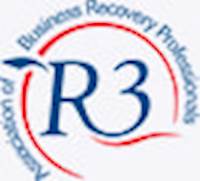The directors loan account records the transactions of a company with its director (or other close family member) that receive money from a company that is not
- a salary or wages subjected to PAYE through HMRC’s RTI system
- or a shareholder dividend (where the director is also a shareholder)
If a directors loan account is in credit or is in debit (often referred to as being ‘overdrawn’) with the company at its accounting year end, then its balance forms part of the balance sheet of the company’s annual accounts submitted to Companies House.
Directors loan account examples:
- Cash withdrawals made by a director
- Payments from the company to the director that are not subjected to PAYE and accounted for via HMRC’s RTI system
- Personal or other non-business expenses paid using company money
Directors Loan Account Tax
Corporation tax may be chargeable on an overdrawn directors loan account. An overdrawn directors loan account repayment must be remedied within 9 months of the corporation tax accounting period, otherwise a corporation tax penalty of 32.5% of the outstanding loan amount is applied. The corporation tax can be reclaimed - but not the interest.
For directors loans over £10,000, HMRC considers the money to constitute salary and as such NI and personal income implications apply for both the director and the company.
In addition, if a director is also a shareholder, the company must record the directors loan account interest rate and if it falls below the official HMRC rate then it is treated as a benefit in kind, with the difference being taxed.
Directors Loan Account In Credit
A director may draw on a directors loan account in credit, with no tax or NI implications. However, it is worth noting that in times of balance sheet insolvency preceding a company liquidation or administration, a repayment made by a company against a directors loan account in credit, could constitute a voidable preference contrary to section 239 of the Insolvency Act 1986, which a liquidator or administrator then seeks to recover. Further reading on Preference Payments.
Directors Loan Account In Debit / Directors Loan Repayment
Finally, it is worth noting that in times of company financial distress a directors loan account in debit may be seen as an asset of the company that can be realised to pay creditors.
Resolutions to this may include:
- Directors loan repayment
- Offsetting the loan
- Company restructuring using a Company Voluntary Arrangement (CVA).
To discuss in detail a directors loan account in credit or debit please do contact us 0121 201 1720. Our advice is free, accredited and there is no obligation.




